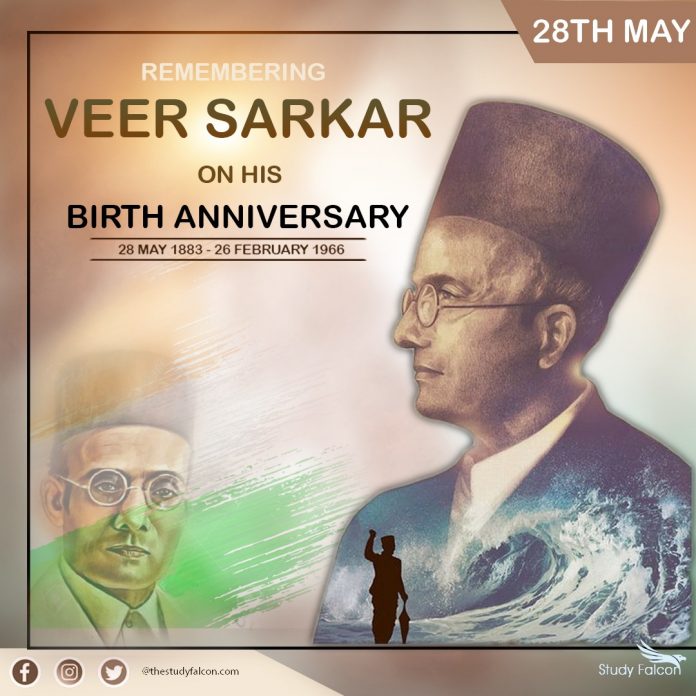- 28th May 2021 marked the 138th birth anniversary of VinayakDamodarSavarkar, one of the most prominent ideologues of Hindutva in the 20th century.
- VinayakSavarkar commonly known as SwatantryaveerSavarkar or simply Veer Savarkar in Marathi was an Indian independence activist and politician who formulated the Hindu nationalist philosophy of Hindutva.
- Savarkar joined the Hindu Mahasabha and popularized the term Hindutva (Hinduness), previously coined by ChandranathBasu,to create a collective “Hindu” identity as an essence of Bharat (India).
- Savarkar was an atheist and also a pragmatic practitioner of Hindu philosophy.
- Savarkar was also the first political leader to set independence as India’s goal in the 1900s.
- Almost immediately after joining college, he had started organizing and spreading his anti-British and revolutionary ideas through his efficient oratory and writing skills, the Congress accepted this goal much later in its Lahore session in 1929.
- He was a proponent of a united India, which was inclusive and diverse, an India that was an organic result of all its diverse cultures. He believed in the idea of inclusivity for mobilizing the Indian masses.
- During the 21st annual session of the Hindu Mahasabha held in Calcutta in 1939, Savarkar, in his presidential address, spoke about how the Hindus and Muslims could bury their historical differences in a common Hindustani constitutional state.
- In 1948, Savarkar was charged as a co-conspirator in the assassination of Mahatma Gandhi however, he was acquitted by the court for lack of evidence.
- The airport at Port Blair, Andaman and Nicobar’s capital was renamed Veer Savarkar International Airport in 2002.
- One of the commemorative blue plaques affixed on India House fixed by the Historic Building and Monuments Commission for England reads “VinayakDamodarSavarkar, 1883–1966, Indian patriot and philosopher lived here”.
He wrote 38 books in English and Marathi, consisting in many essays, two novels called Moplah Rebellion and the Transportation, poetry and plays, the best-known of his books being his historical study The Indian war of independence, 1857 and his pamphlet Hindutva: Who Is a Hindu?










